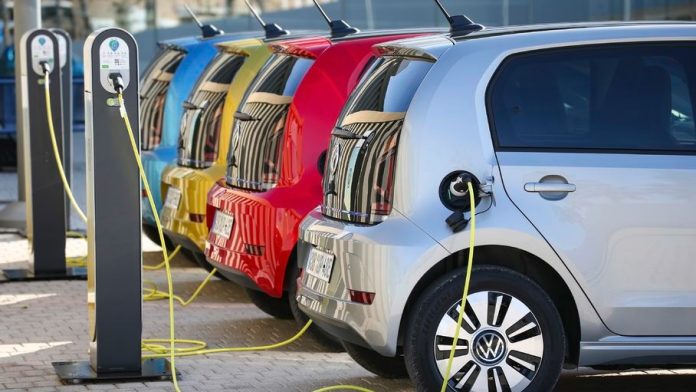Tunisia aims to have 50,000 cars, 5,000 charging points and 50 MW of installed power by 2030, compared to 500 cars, 500 charging points and 5 MW by 2025.
The 2024 Finance Law provides for a reduction in VAT on electric vehicles from 19% to 7%, a 50% reduction in registration fees for electric vehicles and a 50% reduction in road tax (vignette) for electric vehicles.
Against this backdrop, Abdelhamid Gannouni, head of the energy efficiency department at the National Energy Management Agency (ANME), told a private radio station that buying an electric car is very advantageous for Tunisians.
Apart from the fact that electric cars are much cheaper to run (consumption, maintenance costs, etc.), driving an electric car is also more attractive from a fiscal point of view, because the state has reduced VAT on this type of car from 19% to 7%, reduced sticker prices by 50% and cancelled all customs duties,’ he explained.
For a car that costs 100,000 dinars, the citizen gets 45 to 50,000 dinars in benefits,” he added.
On another level, Abdelhamid Gannouni pointed out that the 10,000 dinars ecological bonus is a privilege intended for companies to encourage them to opt for electric cars.
He also pointed out that the national fleet of electric vehicles does not exceed 150 units, while the government aims to increase this figure to 50,000 by 2030.
Contrary to what some people thought, electric car drivers don’t have to worry about recharging, as the number of recharging points is equal to the number of vehicles on the road. These charging points are usually installed in petrol stations and hotels, but there are plans to install new ones in supermarkets, especially in the regions,” he said.
New measures to promote electric mobility by 2030
Regulatory, pricing, technical, institutional and economic measures have been drawn up to encourage the promotion of electric cars in Tunisia, said Ouael Chouchane, Secretary of State to the Minister of Industry, Mines and Energy, in charge of energy transition.
Speaking at a workshop on the promotion of electric mobility, he announced that it had been decided at the regulatory level to consider the recharging of electric vehicle batteries as a “service”, with electricity as one of the various inputs.
To this end, a draft decree has been prepared to allow all aspects of the recharging service to be organized through a set of specifications, he added.
In terms of the standardization framework, Chouchane said that the standard relating to the nomenclature of Tunisian activities had been updated to include the electric vehicle battery recharging service, and that a decree updating standard NT120 was in the process of being adopted.
He went on to say that the Department of Industry is working on a National Strategy for Electric Mobility, which will help to improve the energy performance of the transport sector and reduce its carbon footprint.
This strategy, he added, will make it possible to set clear targets for the number of electric cars and the number of charging points, in parallel with the national energy transition strategy, the national environmental transition strategy and the low-carbon development strategy.
The transport sector is the largest consumer of energy in Tunisia, accounting for around a third of final energy consumption and more than 50% of oil product consumption.
A range of technical measures
In terms of technical measures, he explained that a plan has been put in place to build the technical capacity of those involved in the deployment of recharging infrastructure, in addition to drawing up a set of standard technical specifications to be adopted by all project owners and preparing a practical guide for decision-makers and a technical guide for other stakeholders.
These measures also include the introduction of a standardization framework for charging infrastructure and the establishment of accredited laboratories to check that equipment complies with the applicable standards.
He added that a specific framework of standards is being developed by INNORPI, with the support of ANME, covering all activities related to electric mobility, in particular those related to charging infrastructures.
He added that discussions were underway with CETIME to set up a special laboratory to check that equipment complies with current standards.
On the subject of tariffs, Hanchi announced that the regulators had decided to opt for a non-administered tariff policy, with a requirement for tariffs to be displayed, in addition to the adoption of a specific tariff to promote smart charging and incentive tariffs for night-time charging.
The proposed economic measures include a reduction in taxation on equipment used in charging stations and the provision of investment incentives from the Transition Fund to encourage the deployment of charging infrastructure.
Hanchi pointed out that in addition to these new measures, others have been approved as part of the Finance Acts for previous fiscal years.
He cited the Finance Act for 2022, which introduced a reduction in import duty for buses, light vehicles and goods vehicles equipped with an electric motor, a 50% reduction in consumption tax for hybrid vehicles and a 50% reduction in energy management tax for hybrid vehicles.













